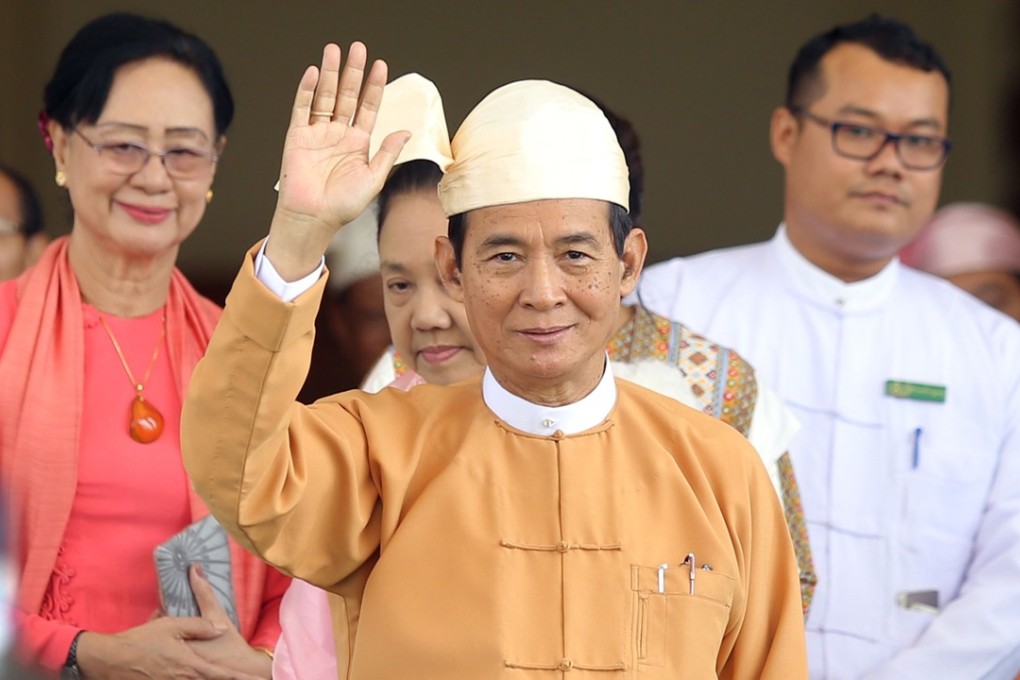Time for Myanmar’s ageing rulers to make room for next generation
With the new president in his mid-60s and de facto leader Aung San Suu Kyi in her 70s, the fledgling democracy needs to ensure the next generation of political talent will be ready to take up the mantle

For Myanmar, the appointment of a new president has been a case of out with the old, in with the slightly less old. Win Myint, 66, has been chosen to replace Htin Kyaw, 71, who resigned last week due to poor health. The change will have little bearing on the country’s policies as the position is symbolic; State Counsellor Aung San Suu Kyi holds sway over the ruling National League for Democracy (NLD) party. That grip is why grooming a younger generation of citizens willing to genuinely serve the needs of the people has to be a matter of urgency.
Myanmar’s politics are dominated by the NLD and the military-backed Union Solidarity and Development Party, which govern under a delicate power-sharing arrangement. The transition to democracy promised by a junta that ruled for more than half a century has been slow to take shape, and Suu Kyi’s insistence on keeping a tight grip on the NLD’s power has not helped. She and other leaders are now in their 60s and 70s – or older – and not all in the best of health; Htin Kyaw is just the latest to step aside.
Suu Kyi, 72, has a special place in the country’s politics, a status earned from leading the struggle for democracy that ended with the NLD being swept to power in elections in 2015. Unable to assume the presidency under a junta-written constitution that bars those with close family ties to foreign citizens (her late husband was a British historian), she has been given a position that makes her the de facto head of state.
Despite the NLD’s name, though, its nature is undemocratic, with the over-centralised structure ensuring Suu Kyi has ultimate decision-making authority and a tight-knit core of fast-ageing former political prisoners and student activists backing her every word. Those who fought for change have been rewarded with party and government positions, giving the perception that attaining office requires sacrifice and a closeness to Suu Kyi.